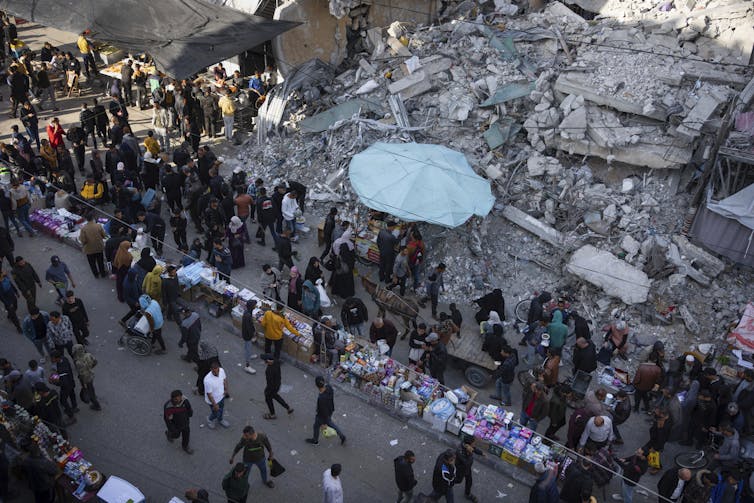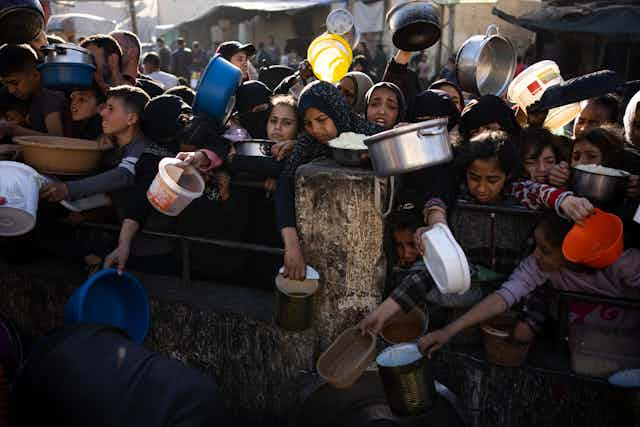On Monday, the European Union’s foreign policy chief accused Israel of using starvation as a weapon of war and provoking famine in Gaza.
Israel denies the allegations, which are some of the strongest words we have heard from a western power about the situation in Gaza since October. The EU statement comes on the heels of a UN-backed report that warns that more than one million people — half of Gaza’s population — face catastrophic starvation conditions.
The report compiled through a partnership of more than 19 international agencies, including the United Nations and the Canadian International Development Agency, goes on to say that without an immediate ceasefire and a major influx of food especially into areas cut off by fighting, famine and mass death in Gaza are imminent.
In response to Monday’s report, the United Nations Secretary-General, António Guterres said Palestinians in Gaza are “enduring horrifying levels of hunger and suffering” and called the findings an “appalling indictment of conditions on the ground for civilians.”
“We must act now to prevent the unthinkable, the unacceptable and the unjustifiable,” he said.

Scholars of famine say this is the worst food deprivation they have observed in war time since the Second World War. And according to international law, intentional starvation of a population is a war crime.

Hilal Elver joined us to share her extensive expertise on the issue. Prof. Elver is the former United Nations Special Rapporteur on the Right to Food, a position she held for six years, from 2014 to 2020. She is also a research professor of Global Studies at the University of California Santa Barbara and a Global Distinguished Fellow at the Resnick Center for Food Law and Policy at UCLA School of Law. Elver currently serves on the committee of experts at the Committee on World Food Security.
With almost 50 per cent of Gaza’s population under 18, Elver says children are forced to grow up quickly in Gaza. She worries for their future. She says even if we stop the war right now, “we’re going to lose this generation.”
Listen and follow
You can listen to or follow Don’t Call Me Resilient on Apple Podcasts (transcripts available), Spotify, YouTube or wherever you listen to your favourite podcasts.
You can read the transcript of this episode here.
We’d love to hear from you, including any ideas for future episodes.
Join the Conversation on Instagram, X, LinkedIn and use #DontCallMeResilient.
Resources
Famine Review Committee Report: Gaza Strip Acute Food Insecurity March 2024 — Integrated Food Security Phase Classification
Mass Starvation: The History and Future of Famine by Alex de Waal
U.N. chief pleads for Gaza lifeline at Egypt border crossing
From the archives - in The Conversation
Read more: Western moral credibility is dying along with thousands of Gaza citizens

